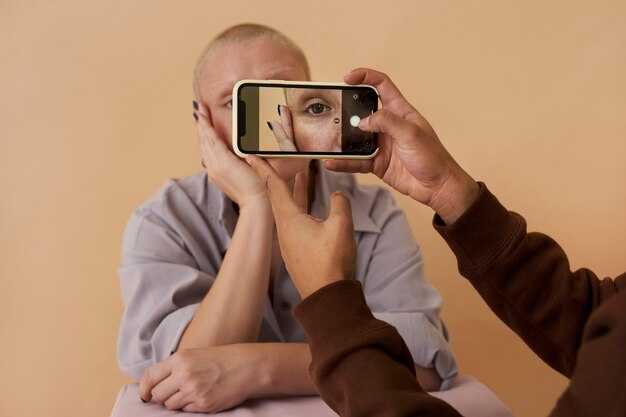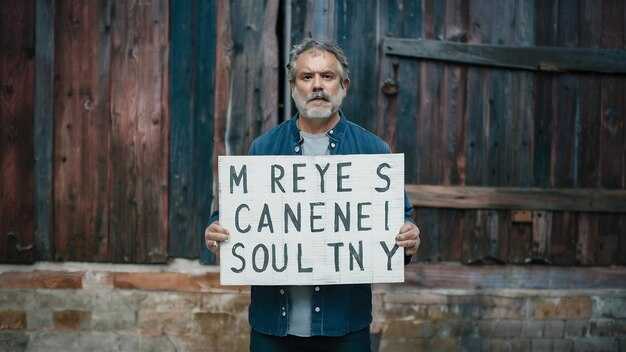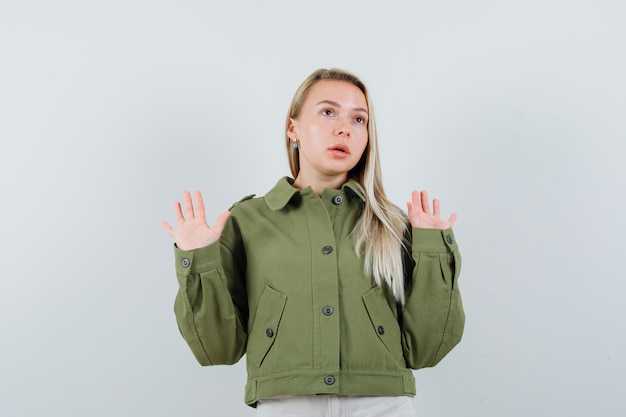Many of you have shared that lately you’ve been feeling a hollow kind of ache, especially around the holidays — a blend of sadness and a question of “what’s the point?” I recognize that sensation well. Maybe you feel down, adrift, or convinced that the world has become so bleak there’s no goodness left. But there is goodness, even in the darkest hours, and I want to guide you through a short, 10-minute relaxation meant to help you reconnect with that benevolent presence and shift how you perceive things almost immediately. I’ve prepared a special assignment for anyone feeling empty, hopeless, or lost right now. This guided relaxation doesn’t require watching; you can simply close your eyes and listen if you choose. I’ll walk you through a guided memory tour — not to dredge up every painful moment, but to set aside the trauma for the time being and intentionally focus on the good that has touched your life. When we give attention to the positive, it has a way of seeping in and loosening the places where we feel stuck, sad, or numb. For this exercise, settle into a comfortable chair, couch, or wherever you can rest, and make yourself as cozy as you can. If you want, close your eyes; if you’re driving, of course keep them open, but you can still follow along mentally while walking, working with your hands, or during other light activity — this won’t take you into a trance, only into thought. I will name a series of kinds of positive experiences you might have had and give you time to dwell on each one. If I mention something that hasn’t happened for you yet, that’s fine — I’ll suggest an alternative. And if you need to stop at any moment, that’s okay too. Begin by bringing gentle attention to your body in a resting state. You may notice aches or things you wish were different, but for now allow yourself to appreciate what your body does for you: it lets you breathe, move, touch, gesture, embrace the people, cats, and dogs you love; it helps you speak and show expression. If you can see, hear, taste, or smell, these are extraordinary abilities to sense the world around you. Whatever your body’s condition, recognize it as an instrument that enables you to live, learn, and do good — a remarkable living system worthy of thanks. Put any criticism aside for the moment and simply feel the gift of being embodied. Now tune into the space where you’re sitting and listening. Are you at home, in an office, on a bench, in a car, or someplace else? Offer a small moment of gratitude for that place — the shelter, the chance to rest your feet and back, the fact you aren’t exposed to cold or blazing heat. Think for a moment about the people who built or maintained the space around you: workers with tools who spent long days creating this room, bench, or vehicle. They had their own lives, struggles, and joys, and their labor made it possible for you to sit safely and comfortably now. Consider them with appreciation: by doing their work they contributed something good to your life. Over the next several minutes, I’ll ask you to call to mind people who have brought goodness into your life. I know some people have caused you harm and that remains part of your story, but right now let’s focus on those who have given good. Think of someone who comforted you when you were ill, grieving, or hurt. Remember the small attentions, the reassuring touch, the way they helped you move from fear or pain to a gentler sense of safety that let you rest and heal. Hold a moment of appreciation for that comforter. Next, recall someone who opened your eyes to a work of art — a book, a song, a painting — that resonated deeply and sparked your imagination. That person shared beauty with you and, by doing so, added goodness to your life and to the world. Think now of someone who praised you for a natural strength: perhaps a teacher who noticed your swift running, a parent who thanked you for helping around the house, or someone who acknowledged your kindness to animals. Maybe the praise came later for a job well done, an act of bravery, or a thoughtful gift; letting you see what was good about yourself was their gift and their way of multiplying goodness. Remember someone who stepped in to keep you safe — the person who helped you out of danger, stood up for you, taught you to protect yourself, or gently stopped you from heading down a harmful path. Acknowledge those moments when another intervened for your safety and brought real good into your life. Bring to mind someone who taught you a skill that enabled you to earn a living. Learning how to use a computer, drive a car, write well, build, lead, care for others, cook, or perform clinical or research work — any competence that helped you provide for yourself and keep a roof over your head — was a profound gift. Give thanks to whoever taught you those abilities; you were not born knowing them, and that teaching was an act of goodness. Reflect on someone who modeled honesty, courage, kindness, or moral strength for you. None of us arrive with a fully formed ethical compass; many of us learned how to act honorably by watching neighbors, teachers, friends, or even fictional characters. If someone’s example shaped the person you became, hold them in silent appreciation for bringing good into your world. Have you had someone who helped you get organized when life felt overwhelming — offering a place to stay, helping with chores, or cleaning a cluttered space? Honor those helpers for relieving your burden. Hold in your heart anyone who defended you when you were wrongly accused; being stood up for in those moments is a rare kindness. Think also of the people who introduced you to the wonders of nature — who taught you to love animals, trees, rivers, and the outdoors. They opened a door to beauty and goodness. If someone helped you or a loved one stop drinking or using drugs when you couldn’t do it on your own, give them deep gratitude; that intervention may have changed the course of several lives. Remember the person who cooked you something delicious or made a holiday feel special, the one who helped you mend a relationship by guiding a conversation between a spouse, parent, or child, or the person who invited you in when you felt alone and put a place for you at their table. Hold dear the person who offered a kind word when shame weighed on you and reassured you that you could turn things around. Think of someone who encouraged you and helped you see your life as meaningful and purposeful. If some of these people aren’t yet part of your life, consider this: you can be the person who offers these gifts to others. When you give kindness, wisdom, shelter, creativity, praise, or rescue, you add good to the world — and that goodness often returns to you in unexpected ways. As you picture the many people who have shown up for you — sometimes in crisis, sometimes quietly when you hadn’t even asked — it can feel as if a circle of guardian-like presences has been traveling with you all along. Let that feeling in: even amid hardships, there have been moments of care and kindness from people who, knowingly or not, brought goodness into your life. Because you have been uplifted by such acts, you are invited now to join them. Allow your healing to create more space in your heart so you can notice what the world needs and let goodness flow through you to others. Take your place among those who give: as you recover from past difficulties, you will find increasing capacity to recognize and share the good that the world so deeply needs.
Practical steps for the 10-minute practice
Use this quick structure so you can run the exercise on your own whenever you need it:
- Minute 0–1: Settle in. Find a comfortable seat, soften your gaze or close your eyes, and take three slow, deep breaths.
- Minute 1–2: Body appreciation. Scan your body briefly and name one or two things it does that you’re grateful for (breathing, moving, sensing).
- Minute 2–6: Guided memory tour. Move through 4–6 of the prompts above (comforter, art introducer, teacher of a skill, protector, organizer). Spend 30–60 seconds visualizing each person and the small gestures they offered.
- Minute 6–8: Expand outward. Think of a place, an animal, or a public service that made your life easier — a park, a nurse, a bus driver — and offer silent thanks.
- Minute 8–10: Set an intention. Imagine one small way you could pass a kindness forward today or this week, and hold that intention for a final breath or two.
Short and longer variations
- 2-minute reset: Name one person who helped you recently and one small thing you can do for someone else today.
- 5-minute pause: Do the body appreciation and two memory prompts, then set one intention.
- 20–30 minute deep session: Include journaling afterward — write names, details, and how each moment of kindness affected you.
Why this helps (brief science)
Focusing deliberately on positive social moments activates neural pathways linked to reward and social connection, increases feelings of gratitude and warmth, and can lower stress physiology. Repeated practice builds a habit of noticing kindness, which shifts attention away from threat-focused thinking and makes prosocial choices more likely.
Safety and cautions
- If remembering people or events brings up strong distress, stop the exercise and try a grounding technique (feet on the floor, 5 deep breaths, name five objects you can see). You can return to this practice later or seek professional support.
- This practice is not a replacement for therapy or medical care. If you’re experiencing pervasive hopelessness, suicidal thoughts, or severe depression, contact a mental health professional or a crisis line in your country immediately.
How to make it stick

- Schedule brief sessions: 2–3 times per week at first, then daily for two weeks to build the habit.
- Pair it with a routine: do it after brushing your teeth, on public transit, or before bed.
- Share it: invite a friend to try the exercise and compare experiences — sharing increases accountability and connection.
- Track impact: notice small changes (easier mood shifts, more acts of kindness) and jot them down to reinforce the positive loop.
Recursos e próximos passos
If you want to deepen this work, consider brief journaling after each practice, guided gratitude meditations (apps or podcasts), or a therapist who specializes in trauma-informed care or behavioral activation. If immediate help is needed, reach out to local emergency services or crisis lines — you don’t have to face intense distress alone.


 Quick Technique to Instantly Change How You See the World">
Quick Technique to Instantly Change How You See the World">

 Faça ISSO e Evite que os Fugitivos se APRESSEM ou SAIAM (5 Fronteiras) | Jordan Peterson">
Faça ISSO e Evite que os Fugitivos se APRESSEM ou SAIAM (5 Fronteiras) | Jordan Peterson">
 The Avoidant’s Secret Clock: The Truth About WHEN to Reach Out (Psychology Explained)">
The Avoidant’s Secret Clock: The Truth About WHEN to Reach Out (Psychology Explained)">
 Don’t Let These Attachment Styles Hurt Everyone (4-Video Compilation)">
Don’t Let These Attachment Styles Hurt Everyone (4-Video Compilation)">
 The Final Dirty Trick Avoidants Use When You Stop Caring (This Will Hurt) | Jordan Peterson">
The Final Dirty Trick Avoidants Use When You Stop Caring (This Will Hurt) | Jordan Peterson">
 This Is How Avoidants Test You (It’s Not Rejection, It’s Fear) | Jordan Peterson Motivational Speech">
This Is How Avoidants Test You (It’s Not Rejection, It’s Fear) | Jordan Peterson Motivational Speech">
 10 Shocking Signs That’s NOT LOVE, It’s Limerence">
10 Shocking Signs That’s NOT LOVE, It’s Limerence">
 How Avoidants Secretly Stay Connected to Multiple Partners">
How Avoidants Secretly Stay Connected to Multiple Partners">
 Nunca namore ninguém sem estes sinais verdes!!">
Nunca namore ninguém sem estes sinais verdes!!">
 Por que o Evitativo Sempre Volta. (Você é Inevitável)">
Por que o Evitativo Sempre Volta. (Você é Inevitável)">
 Como a Culpa o Impulsiona a Obsessar em Alguém que Você Não Pode Ter">
Como a Culpa o Impulsiona a Obsessar em Alguém que Você Não Pode Ter">